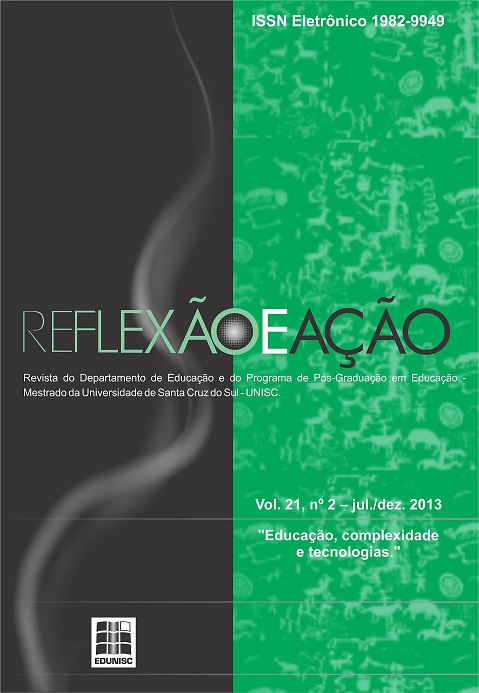SUBJECTIVITY AND INTERACTION IN ONLINE FORUMS: REFLECTIONS ON THE PERMANENCE OF STUDENTS IN DISTANCE EDUCATION PROGRAMS
DOI:
https://doi.org/10.17058/rea.v21i2.3740Keywords:
Online Forums, Distance Education, Permanence, Subjectivity, InteractionAbstract
This article was developed in order to produce indicators that can enhance the functionality of online forums contributing to increased permanence of Distance Education students. An analysis, guided by the Qualitative Epistemology, of the subjective and interactive processes was made based on the information produced during the Presentation and Discussion Forums of two pedagogical training disciplines of the Bachelor of Theater, Music and Visual Arts at UAB/UNB: (1) Strategies for Teaching and Learning, and (2) Psychology and the Construction of Knowledge. The information produced point to the need for recognition and valuation of the student as subject of its own learning, the consolidation of the pedagogical presence of the tutor, the appreciation of the forums as learning spaces and the production of social spaces of belonging.Downloads
Downloads
Published
How to Cite
Issue
Section
License
The submission of originals to this journal implies on the transference, by the author(s), of the printed and digital publishing rights. The author´s rights to the published articles are the author´s, the journal has the rights over the first publication. The author(s) can only use the same results in other publications, indicating clearly that this journal was the original publisher. Since we are an open access journal, the free use of articles is permitted for educational and scientific applications, as long as they inform the source according with the CC-BY license from Creative Commons.


